


DEI Digest
December 2023
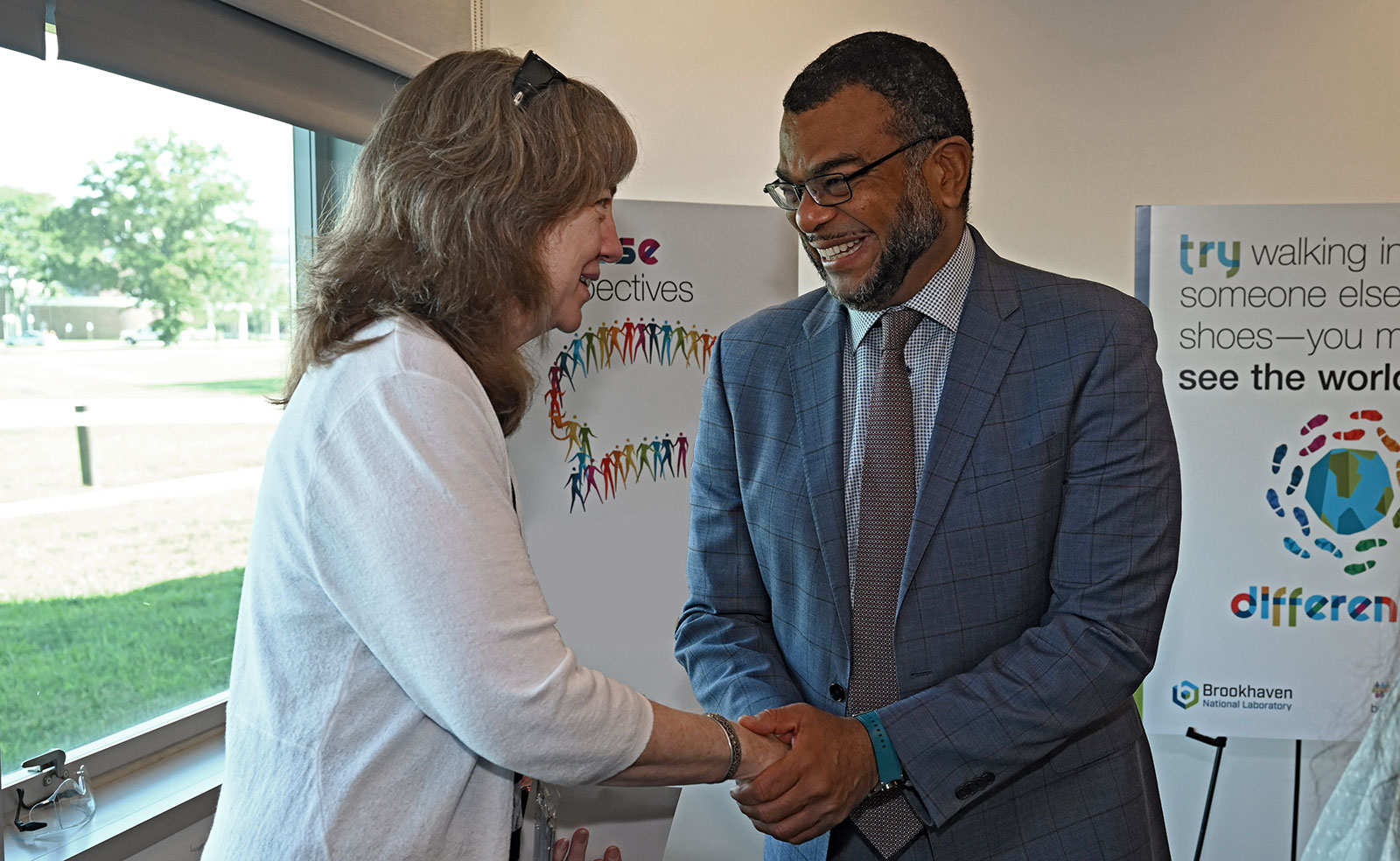
A View from the Top
Talking DEI with JoAnne Hewett
Chief Diversity Officer Noel Blackburn sits down with Brookhaven's new Lab Director to talk about her passion for physics, her early career experiences facing discrimination, and her vision for diversity, equity, and inclusion at the Lab.
Noel Blackburn: JoAnne, thanks for talking with me on this important topic. Let’s start from the beginning. You are a theoretical physicist by training. I would imagine you were one of the few women pursuing this field at the time. Tell me what it was like—were you treated differently? Did people try to discourage you from pursuing the degree?
JoAnne Hewett: This was 40 years ago, and it was very different than it is now. Yes, I was essentially the only woman pursuing this field. I don't think anybody actively discouraged me from pursuing the degree, but nobody took me seriously. I had people actively tell me to my face that I wasn't any good, that I didn’t know what I was doing, that I should just stay at home and have babies. I actually had somebody send me a typewritten note, anonymously through the mail, telling me that I wasn't as good as I thought I was and that I should just stay home. So was I treated with respect? No, not at all.
NB: What kept you going?
JH: I love doing what I do. And I knew that I was good enough. I had the confidence in myself. I knew I could do it because I was doing it. I was doing research that was just as good as anyone around me at the time.” So I knew I could do it. And I just refused to listen to anybody else.
NB: Did you ever suffer from impostor syndrome?
JH: Yeah, definitely. There's no question about that. But I muddled through. I just kept going forward. It's sort of like, well, I started this, I’ve got to finish it.
NB: You were the first woman faculty member of SLAC back in 1994. That was decades before the term “DEI” was coined. It reminds me of the movie Hidden Figures, in the scene when Katherine Johnson has to traverse half a mile across the NASA campus to use a colored woman's bathroom and her boss, who happened to be a white male, had no idea of that daily hurdle she faced. Did your male peers at SLAC have blind spots like that?
JH: That's a very moving scene from that movie. For me, my first few years at SLAC were very, very difficult. I was not the first pick of the theoretical physics group. They did not want me. When the lab director gave me the offer with my salary, he said, “That should sound good to a gal like you.” What did that mean, “a gal like me”? My very first day at SLAC my supervisor told me I wasn't going to get tenure, but that “that was okay.” Why was that okay? I had trouble getting computer equipment—the basic onboarding equipment that anyone would receive at a new job, I had trouble getting. I had trouble getting travel money. It was over and over and over.
Faculty meetings were held in a room called the Orange Room. It had a U-shaped table that didn't hold all of the faculty members, so some of them had to sit in the back of the room. I made sure I got to those meetings early so that I had a seat at the table, because the only woman was not going to sit in the back of the room. After my first meeting, one of the male Nobel Prize winners came up to me and said, “Well, I watched you during the meeting and I think you're going to be okay.”
NB: Wow. Yet you persevered. What were the things you were doing as a faculty member that let you still love what you did?
JH: It was the research, really. As a theoretical physicist, I work with experimenters. I absolutely loved working with them and the experiments at the lab. That is what carried me through—the love for the science and the fact that SLAC was such a good place to be doing it. Even though the people were horrible. [laughs]
And you know, at the end of the day, I won them over. And that's sort of been my way of dealing with it—if somebody tells me I can't do something, I'll buckle down and do it twice as well, and then most of them do come around and say yeah, okay, she did it. Mm-hmm. Yeah.
NB: JoAnne, you've held leadership roles for many years. What are your secrets to leadership success when it comes to inspiring a team of individuals of diverse backgrounds and disciplines?
JH: SLAC was old school, where you had men who would bang their fists on the table and make big pronouncements and proclamations. I'm just not like that at all. I like to lead with a carrot instead of a stick. I think it's more important to encourage the drive that human beings naturally have to do the right thing and to do their best in their job. People want to be creative and innovative. So I try to encourage that. And I've found that has been the best route to success—to just encourage everybody and open the path for them so that they can do the best that they can. Don't put up roadblocks or barriers. I mean, if they need computer resources, give them to them! As I said, carrot instead of a stick.
NB: Why is DEI so important, in the area of science in particular?
JH: Because we've been so bad at it for so long! And I think my own story as a graduate student, as a postdoc, and as assistant professor really exemplifies that we've just been so closed off. I'm a firm believer that it's actually a moral “must” that everybody be able to pursue what they want and what they have the talent for, and they should not be held back by artificial barriers that other humans are imposing on them.
NB: How do you want your employees to see you?
JH: I want them to say I’m somebody who is very serious about what they do, and about making sure everything gets done, compassionately and honestly. Seriousness is the foundation. I want them to see me as a person with a solid foundation who can be compassionate on top of that, to accomplish what we need to do.
NB: The current DEIA plan is laid out in the Laboratory Diversity Inclusion Plan (LDIP). What have you been most pleased to see about our DEIA efforts so far?
JH: I think the DEIA program here is absolutely terrific. I really do. It's the best I've seen of the ones that I've been exposed to. It's a gold star. The seriousness with which so many people take it, the engagement that so many people have, the number of Minority Serving Institutions that we've reached out to, the fact that each organization within the Lab has its own DEI Council, the diversity we had in our summer internships last summer. All of it is really just terrific.
NB: Thank you! How do you envision DEIA at the Lab for the future?
JH: My vision for the future is that DEIA becomes irrelevant because we don't need it. You will be judged based on your talent and your ability and not who you are.
NB: Fantastic. Thank you very much, JoAnne, for this interview, and for taking time out of your busy schedule to discuss DEIA with us.
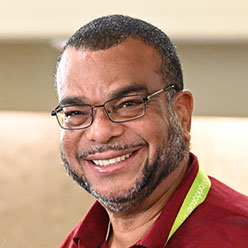
Post-script from Noel: I'm very grateful to JoAnne for her openness, vulnerability, and transparency in this conversation. Her stories are reminiscent of the stories being shared by other Lab staff in the Diverse Perspectives video series (see below) and underscore the importance of providing all Lab staff with the opportunity to talk about their experiences. This dialog around DEIA will be ongoing, and we welcome your feedback. Email us or send us mail at Mail Stop 400B.
Diverse Perspectives
Check out the second installment in the Diversity, Equity, and Inclusion Office’s video series, “Diverse Perspectives,” in which staff share stories about themselves and their diversity, equity, inclusion, and accessibility (DEIA) experiences at work and in their lives.
Diverse Perspectives - Jonathon Greene
October 23, 2023
Part of the Diversity, Equity, and Inclusion Office's video series "Diverse Perspectives," in which staff share stories about themselves and their diversity, equity, inclusion, and accessibility (DEIA) experiences at work and in their lives.
Management Receives Training in Addressing Microaggressions
Brookhaven is committed to creating a workplace where each team member can contribute and do their best work in pursuit of our mission. Team members must feel psychological safety—that they are secure in raising concerns, new ideas and suggestions, and in challenging the status quo. The support and participation from leaders is key to creating this environment.
One of the greatest challenges to ensuring a respectful workplace is addressing the subtle verbal and behavioral indignities that frequently occur, often referred to as microaggressions. While microaggressions may not be intended maliciously, they can have a cumulative negative effect on employee engagement, productivity, and morale. Properly addressing microaggressions is a critical step to creating a respectful culture in the workplace.
To this end, during a recent Management Council Meeting, about 100 managers attended a workshop led by corporate culture expert, author, and scientist Tony Chatman, entitled “Building a Respectful Workplace by Addressing Microaggression.” Managers learned how to recognize microaggressions and what to do when they witness or commit one. Attendees said they took away valuable guidance that they immediately put into practice with their own teams, and expressed the importance of this kind of training in evolving the culture at Brookhaven National Lab:
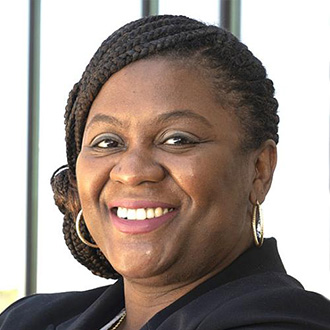
“After the workshop, we were all talking and people were reflecting on their own behavior, whether they were the ones who offended someone unintentionally, or whether they were in a group where a microaggression happened to someone else and they remained silent. I know from experience that it’s hard to speak up and call someone out for a microaggression. But after you do it the first time, you feel a sense of empowerment, and it motivates you to speak up the next time you see it happening.”
Kimberly McGuire, Chief Operations Officer, Co-design Center for Quantum Advantage (C2QA)
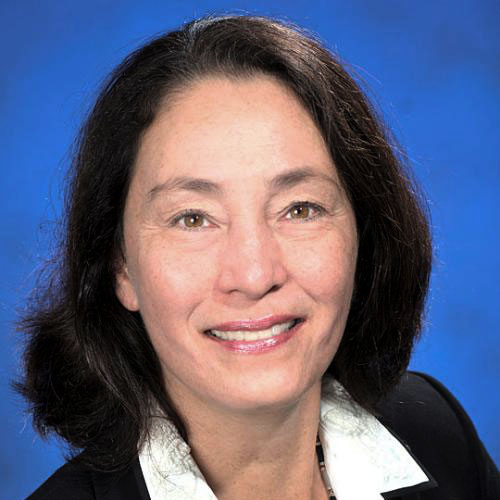
“I know that microaggressions exist in the workplace—I'm always on high alert about things like women getting interrupted when they’re presenting in a meeting. So I went into the workshop looking for advice on how to confront it when it happens. And I learned there are two different levels—one is the kind that you should confront on the spot because it’s blatant and you need to jump in to provide support. But in other cases, where somebody needs to be made aware of their ongoing behavior, it might be advisable to step aside with the person outside of the meeting.”
Michiko Minty, Head of the Accelerator Division / Associate Chair for Accelerators and Applications, Collider-Accelerator Department
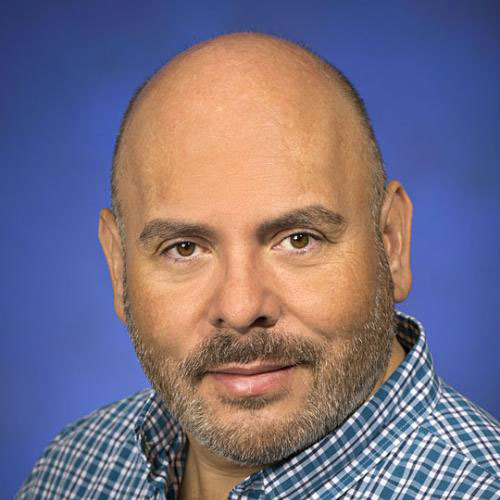
“Microaggressions are very commonplace in competitive scientific environments. Some senior scientists can be very aggressive, and unnecessarily so. Microaggressions are part of the reason many people don’t feel welcome in our institutions. But we have to remind ourselves that talent can appear anywhere, and if we really want to welcome talent for innovations and discovery, we need to create an environment that's, like Tony said, 'physically and psychologically safe' for everyone.”
Alejandro Sonzogni, Department Chair, Environment, Biology, Nuclear Science & Nonproliferation
Raise Your Voice!
Our efforts are a work in progress, evolving over time as we move the needle to change the culture at the Lab. We welcome feedback—positive or negative. If you feel comfortable, email us. If you want to remain anonymous, that’s okay too—send us mail at Mail Stop 400B.
Peer Learning Circles Foster More Intimate Conversations
“Cultivating an Inclusive Workplace,” the second Quarterly Theme Experience, provided a new opportunity for staff from across the Lab to come together and have honest conversations: Peer to Peer Learning Circles. These small group sessions allow employees to share what they're learning, ask any questions they still have, and hear from others. According to Leadership Training Specialist Phyllis Cannella, the Circles have been well-received. “These conversations are important, and sometimes they're hard to have. Peer to peer learning circles allow people to feel safe as they explore these topics more deeply,” Cannella says. Look for Peer to Peer Learning Circles to return in 2024.
If you haven’t completed your Quarterly Theme Experiences for Emotional Intelligence or Cultivating an Inclusive Workplace, you still have time. Access the learning resources on the DEI Quarterly Themes website.
Be on the lookout for the next Quarterly Theme Experience, “Psychological Safety,” which will launch in the new calendar year.


